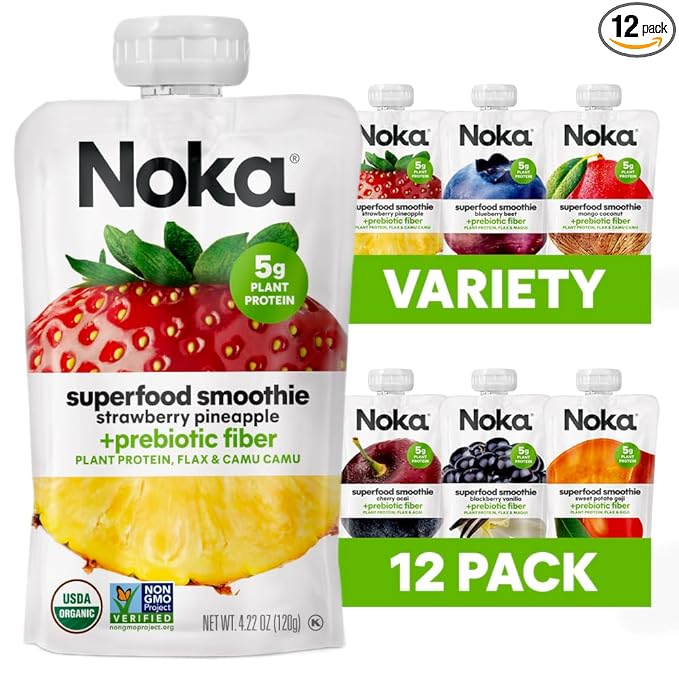Introduction
The importance of gut health cannot be overstated. A healthy gut is not only essential for proper digestion, but it also plays a critical role in our overall health and well-being. Poor gut health has been linked to a range of health issues, from digestive problems to autoimmune diseases.
A juice detox is a popular method for improving gut health. By drinking nutrient-rich juices made from fruits and vegetables, we can provide our bodies with the vitamins and minerals they need to heal and repair the gut.
In this article, we will explore the benefits of juice detox for gut health and provide tips for a successful detox. We will also discuss the different types of juices that are beneficial for gut health and provide recipes for gut-healing juices. Finally, we will address some common questions and concerns about juice detox and provide advice for those considering this approach to improving their gut health.
Benefits of Juice Detox for Gut Health
A juice detox is a popular method for improving gut health, and it offers several benefits such as improved nutrient absorption, reduced inflammation, increased hydration, improved gut microbiome, and reduced stress on the digestive system. Drinking nutrient-rich juices from fruits and vegetables can provide the vitamins and minerals needed to heal and repair the gut. However, juice detox should not be relied on as a long-term solution for gut health issues. Maintaining a balanced diet rich in whole foods is essential for optimal gut health.

Types of Juices for Gut Health
Many different types of juices can be beneficial for gut health. Here are probably the most well-known:
1. Green juice: Green juice is made primarily from leafy green vegetables, such as kale, spinach, and cucumber. It is high in vitamins, minerals, and other nutrients that can aid in gut healing and repair. Green juice is also rich in chlorophyll, a compound that has been shown to have anti-inflammatory properties.Recipe: Kale, Cucumber, and Apple Juice
- 1 cup kale
- 1 cucumber
- 2 green apples
- 1 lemon, peeled
- 1-inch piece of ginger
Nutritional Information:
- Calories: 175
- Carbohydrates: 45g
- Protein: 4g
- Fat: 1g
- Fiber: 11g
Recipe: Beet and Carrot Juice
- 2 medium beets
- 4 large carrots
- 1-inch piece of ginger
Nutritional Information:
- Calories: 215
- Carbohydrates: 51g
- Protein: 6g
- Fat: 1g
- Fiber: 14g
Recipe: Carrot, Apple, and Ginger Juice
- 6 carrots
- 2 green apples
- 1-inch piece of ginger
Nutritional Information:
- Calories: 290
- Carbohydrates: 72g
- Protein: 5g
- Fat: 1g
- Fiber: 22g
Recipe: Ginger and Lemon Juice
- 1 large lemon, peeled
- 1-inch piece of ginger
Nutritional Information:
- Calories: 50
- Carbohydrates: 13g
- Protein: 1g
- Fat: 0g
- Fiber: 1g
Each type of juice offers its own unique benefits for gut health. Green juice is high in vitamins and minerals, beet juice is rich in antioxidants and nitrates, carrot juice is high in beta-carotene and fiber, and ginger juice can help to reduce inflammation and improve digestion. By incorporating a variety of juices into your diet, you can support overall gut health and promote healing and repair.

Preparing for a Juice Detox
Properly preparing for a juice detox can help to ensure that you have a successful experience. Here are some tips:
- Gradually reduce solid food intake: To prepare for a juice detox, it is recommended that you gradually reduce your solid food intake for a few days before starting the detox. This can help to reduce the shock to your system and make the transition to a liquid-only diet easier.
- Stay hydrated: It is important to drink plenty of water before and during the detox. This can help to flush toxins from the body and prevent dehydration.
- Choose high-quality, organic produce: When selecting produce for your juices, it is important to choose high-quality, organic fruits and vegetables. This can help to minimize exposure to pesticides and other harmful chemicals.
- Mentally prepare for the detox: Preparing for a juice detox also involves mental preparation. It can be helpful to set realistic goals and expectations for the detox and to remind yourself of the benefits that it can provide for your overall health.
- Ease into solid foods after the detox: After the detox, it is important to ease back into solid foods slowly. This can help to prevent digestive issues and ensure that your body can properly absorb nutrients.
By properly preparing for a juice detox, you can increase your chances of having a successful experience and supporting your gut health.
Potential Risks and Precautions
Juice detoxes have become increasingly popular as a way to "cleanse" the body and promote weight loss. However, there are potential risks associated with this type of diet that should be considered before embarking on one.
One of the primary risks of a juice detox is nutrient deficiencies. While juices can provide some vitamins and minerals, they are often lacking in essential nutrients such as protein, healthy fats, and fiber. This can lead to deficiencies in key nutrients that are important for overall health.
Another risk of a juice detox is blood sugar imbalances. Juices are often high in natural sugars, which can cause blood sugar levels to spike and then crash, leading to feelings of fatigue, dizziness, and headaches.
For those with certain health conditions, such as diabetes or kidney disease, a juice detox may be particularly risky. Additionally, certain medications can interact with the high levels of vitamins and minerals in juices, potentially causing adverse reactions.
To minimize these risks, it is important to take precautions when considering a juice detox. Those with health conditions or on medications should consult with their healthcare provider before starting a juice detox. It may be necessary to adjust medications or dietary restrictions to ensure safety.
It is also important to choose a juice detox program that is balanced and provides a variety of juices to ensure adequate nutrient intake. Some programs may include supplements or additional foods to help prevent nutrient deficiencies.

Juice Detox and Weight Loss
Juice detox diets have become a popular way to jump-start weight loss efforts. While they are not a long-term solution, juice detoxes can be a safe and effective way to begin a weight loss journey.
The relationship between juice detox and weight loss is relatively simple. By replacing solid foods with nutrient-rich juices, individuals can reduce their overall calorie intake and create a calorie deficit. This calorie deficit can result in weight loss, especially in the short term.
Juice detoxes can be a safe and effective way to jump-start a weight loss journey if done correctly. It is important to choose a balanced program that provides a variety of juices to ensure adequate nutrient intake. Additionally, it is important to consult with a healthcare professional before starting a juice detox to ensure safety, especially for those with health conditions or on medications.
Here are some tips for maintaining weight loss after a juice detox:
- Gradually reintroduce solid foods. After a juice detox, it is important to slowly reintroduce solid foods into your diet. This can help prevent digestive issues and ensure a smooth transition back to a regular diet.
- Eat a balanced diet. It is important to eat a balanced diet that includes a variety of fruits, vegetables, whole grains, and lean protein. This can help provide the nutrients needed for overall health and prevent nutrient deficiencies.
- Stay hydrated. Drinking plenty of water can help flush toxins from the body and promote weight loss. Hope to drink somewhere near 8 glasses of water every day.
- Exercise regularly. Exercise is significant for weight reduction and generally speaking well-being. Aim to exercise for at least 30 minutes per day, most days of the week.
- Get enough sleep. The absence of rest can upset chemicals that direct appetite and digestion, making weight reduction more troublesome. Plan to get somewhere around 7-8 hours of rest each evening.
In summary, juice detoxes can be a safe and effective way to jump-start a weight loss journey. However, it is important to choose a balanced program, consult with a healthcare professional, and follow tips for maintaining weight loss after a detox.

Frequently Asked Questions
- What is a juice detox? A juice detox is a sort of diet that includes drinking just leafy foods and juices for a set timeframe. The goal of a juice detox is to eliminate toxins from the body and promote weight loss.
- How long should I detox for? The length of a juice detox can vary depending on the program. Some programs recommend a few days, while others may last up to a week or more. It is important to consult with a healthcare professional before starting a juice detox to determine the appropriate length of time.
- Can I exercise during a juice detox? Light exercises, such as walking or yoga, is generally safe during a juice detox. However, it is important to listen to your body and avoid intense exercise that may cause fatigue or dizziness.
- Can I work while doing a juice detox? Most people can work while doing a juice detox. However, it is essential to pay attention to your body and enjoy reprieves depending on the situation.
- Can I drink coffee or tea during a juice detox? Some juice detox programs may allow for the consumption of herbal tea, while others may recommend avoiding caffeine altogether. It is important to follow the guidelines of the specific program.
Conclusion
A juice detox can provide numerous benefits for gut health, such as reducing inflammation, improving digestion, and promoting the growth of healthy gut bacteria. However, it is important to approach a juice detox with caution and consult with a healthcare professional before starting.
Before starting a juice detox, it is important to consider any potential risks or interactions with medications or health conditions. It is also important to have realistic expectations and to understand that any benefits may be temporary and may not be sustainable in the long term.
In general, a balanced and varied diet that includes a variety of fruits, vegetables, whole grains, and lean proteins is the best way to support gut health. Incorporating juices and smoothies into a well-rounded diet can provide additional nutrients and hydration, but should not be relied on as the sole source of nutrition.
Remember to prioritize your health and well-being and listen to your body's needs. If you have any concerns or questions about a juice detox, consult a healthcare professional for personalized advice and guidance.






